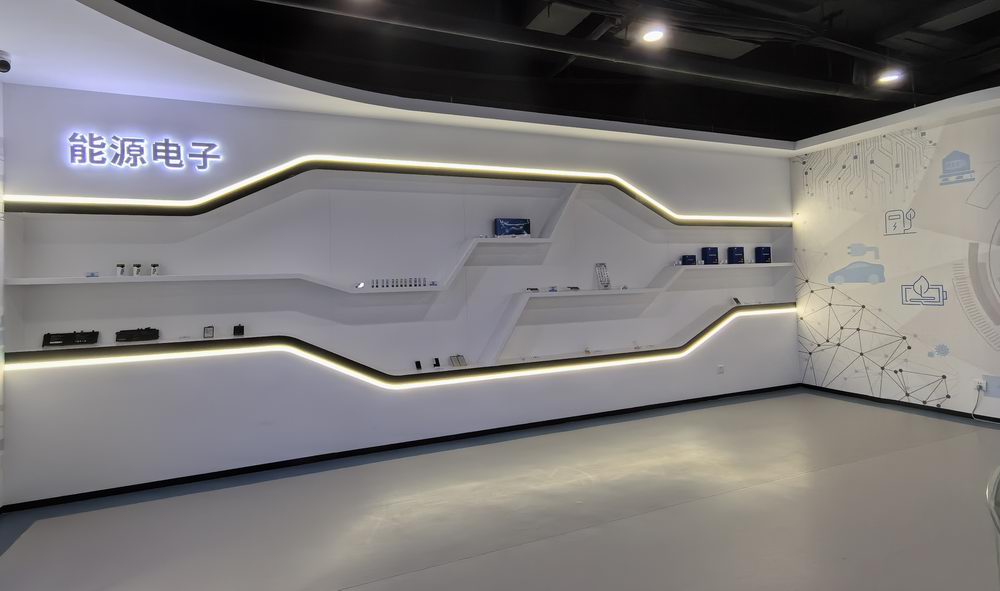Understanding Industry Clusters and Their Role in Growth

Industry clusters are geographic concentrations of interconnected businesses and institutions that thrive on shared knowledge, skills, and resources. The impact of these clusters on economic growth is substantial, as they drive job creation, innovation, and the formation of new businesses. The Regional Financial Innovation Zone is a prime example of a supporting industry cluster, playing a vital role in boosting regional economic performance. This introduction lays the groundwork for exploring how such clusters contribute to economic development.
What are Industry Clusters?

Definition and Characteristics
Geographical Concentration
Industry clusters pop up in specific areas where businesses and institutions connect. Picture a bustling hub where companies share resources, knowledge, and skills. This setup boosts innovation and growth. Harvard Business School and the National Bureau of Economic Research highlight how these clusters drive regional performance. Job creation and new business formation often follow.
Interconnected Companies and Institutions
Clusters consist of interconnected companies, suppliers, and educational institutions. These entities work together, creating a network that supports industry-specific goals. This collaboration leads to meaningful relationships and profitable outcomes. Technology, information, and skills flow freely within these networks.
Historical Context
Origins of Industry Clusters
The concept of industry clusters isn't new. Historical examples show how businesses naturally gathered in certain regions. Think of Silicon Valley or the Detroit automotive industry. These clusters formed because businesses found value in proximity.
Evolution Over Time
Clusters have evolved significantly. Initially, they focused on local needs. Now, many serve global markets. Traded clusters, for instance, provide products worldwide. Local clusters, meanwhile, support regional communities. Both types play crucial roles in economic development.
Did you know? The Zhongkai High-tech Zone is a modern example of an industry cluster. The National Foreign Trade Transformation and Upgrading Base (Electronic Information) Cloud Platform supports businesses there. This platform helps companies grow by offering resources and connections.
Types of Industry Clusters
Traded Clusters
Definition and Examples
Traded clusters operate beyond local boundaries. These clusters sell products or services across regions and countries. Picture the bustling financial services in New York City or the innovative information technology scene in Silicon Valley. The video production industry in Los Angeles also fits this category. Each of these examples showcases a region with a competitive edge in a specific sector.
Economic Impact
Traded clusters drive significant economic growth. Companies within these clusters often lead in innovation. They create jobs and attract talent from around the world. The presence of traded clusters boosts regional economies by increasing exports. This, in turn, enhances the overall competitiveness of a nation on a global scale.
Local Clusters
Definition and Examples
Local clusters focus on serving the immediate community. These clusters include sectors like local entertainment, health services, and commercial services. Think about the neighborhood clinics or local theaters that cater to nearby residents. These businesses form the backbone of local economies.
Economic Impact
Local clusters play a crucial role in supporting regional communities. They provide essential services and create jobs for local residents. The economic activity generated by local clusters keeps money circulating within the community. This strengthens the local economy and improves the quality of life for its inhabitants.
Case Study: Zhongkai High-tech Zone The Zhongkai High-tech Zone exemplifies a thriving local cluster. The National Foreign Trade Transformation and Upgrading Base (Electronic Information) Cloud Platform supports businesses in this area. Companies benefit from resources and connections provided by the platform. This support helps enterprises grow and innovate, boosting the regional economy.
The Role of Industry Clusters in Economic Growth
Innovation and Competitiveness
How Clusters Foster Innovation
Industry clusters create a vibrant environment where innovation thrives. Companies gather in specific areas, sharing knowledge and resources. This setup encourages fresh ideas and creative solutions. Businesses often find inspiration from nearby firms, leading to groundbreaking products and services. The Zhongkai High-tech Zone serves as a perfect example. The National Foreign Trade Transformation and Upgrading Base (Electronic Information) Cloud Platform provides essential tools and connections. This support helps companies innovate and expand their capabilities.
Enhancing Competitiveness
Clusters boost competitiveness by creating a dynamic marketplace. Firms within a cluster compete and collaborate simultaneously. This dual approach pushes businesses to improve and excel. Companies strive to offer the best products and services, enhancing their market position. The presence of skilled workers and specialized suppliers adds to this competitive edge. Delgado et al. highlight how clusters drive job creation and new business formation, further strengthening economic performance.
Collaboration and Networking
Benefits of Collaboration
Collaboration stands at the heart of industry clusters. Companies work together, sharing insights and expertise. This cooperation leads to cost savings and efficiency gains. Firms can access shared resources, reducing expenses and increasing productivity. The Zhongkai High-tech Zone offers a supportive network for businesses. The cloud platform connects enterprises, fostering collaboration and growth. This environment nurtures partnerships that drive success.
Networking Opportunities
Networking opportunities abound within industry clusters. Businesses connect with suppliers, customers, and research institutions. These interactions open doors to new markets and technologies. Companies gain valuable insights and build strong relationships. Riley E. Zipper notes that clusters attract investment and talent, enhancing regional growth. The Zhongkai High-tech Zone exemplifies this trend. The cloud platform provides a hub for networking, helping companies thrive in a competitive landscape.
Comparative Analysis of Traded and Local Clusters
Unique Contributions
Traded Clusters' Global Reach
Traded clusters have a knack for reaching beyond local borders. These clusters sell products or services across regions and countries. Imagine the bustling tech scene in Silicon Valley or the financial services in New York City. These areas thrive by offering unique products to the world. Businesses in traded clusters often lead in innovation. They attract talent from everywhere, boosting regional economies.
Local Clusters' Community Impact
Local clusters focus on serving their immediate communities. These clusters include businesses like neighborhood clinics or local theaters. Local clusters play a vital role in supporting regional areas. They create jobs and keep money circulating within the community. This activity strengthens the local economy and improves residents' quality of life.
Interdependencies
How They Support Each Other
Traded and local clusters often support each other in surprising ways. Traded clusters bring global attention and resources. Local clusters provide essential services and community support. Both types of clusters benefit from collaboration. Companies in proximity can share insights and tackle common challenges together.
Case Studies
The Zhongkai High-tech Zone offers a fascinating example. The National Foreign Trade Transformation and Upgrading Base (Electronic Information) Cloud Platform supports businesses in this area. Companies gain access to resources and connections that help them grow. This platform fosters innovation and collaboration, boosting the regional economy. Businesses in the zone benefit from shared knowledge and tools, enhancing their competitive edge.
Regional Financial Innovation Zone and Supporting Industry Cluster

Role in Economic Development
The Regional Financial Innovation Zone plays a big part in boosting local economies. Businesses find the zone's resources and connections super helpful. Companies grow faster when they have access to these tools. The zone acts like a magnet, attracting new businesses and investments. This leads to more jobs and a stronger economy. The supporting industry cluster within the zone helps companies work together. Businesses share ideas and resources, which leads to innovation.
Impact on Regional Growth
The impact of the Regional Financial Innovation Zone on regional growth is huge. Companies in the zone see their profits rise. New businesses pop up, creating more job opportunities. The local economy becomes more vibrant and competitive. People in the area enjoy better services and products. The zone helps businesses reach new markets and expand their operations. This growth benefits everyone in the community.
The Huizhou Zhongkai High-tech Zone stands out as a shining example. Companies in this zone get support from the National Foreign Trade Transformation and Upgrading Base. The zone offers a cloud platform that connects businesses with valuable resources. Enterprises find it easier to innovate and grow. The platform provides tools that help companies improve their products and services. Businesses in the Zhongkai High-tech Zone thrive thanks to this support.
The Huizhou Zhongkai High-tech Zone stands out as a shining example. Companies in this zone get support from the National Foreign Trade Transformation and Upgrading Base. The zone offers a cloud platform that connects businesses with valuable resources. Enterprises find it easier to innovate and grow. The platform provides tools that help companies improve their products and services. Businesses in the Zhongkai High-tech Zone thrive thanks to this support.
National Foreign Trade Transformation and Upgrading Base
The National Foreign Trade Transformation and Upgrading Base offers a powerful boost to businesses. Companies use the base to access new technologies and markets. The base helps enterprises stay competitive in a fast-changing world. Businesses find the resources they need to succeed. The base serves as a bridge, connecting companies with global opportunities.
Electronic Information Cloud Platform
The Electronic Information Cloud Platform provides essential support for businesses. Companies use the platform to share information and collaborate. The platform offers tools that help enterprises develop new products. Businesses find it easier to connect with suppliers and customers. The platform makes it simple to access the latest technologies and trends. Companies in the Zhongkai High-tech Zone benefit greatly from this resource.
Enhancing Trade and Innovation
The cloud platform enhances trade and innovation in many ways. Businesses find new markets and expand their reach. Companies create innovative products that meet customer needs. The platform helps enterprises stay ahead of competitors. Businesses in the zone enjoy increased efficiency and productivity. The platform supports collaboration, leading to groundbreaking ideas and solutions.
Industry clusters are vital for economic growth. These clusters bring together technology, information, and skills, creating meaningful relationships within industries. The Regional Financial Innovation Zone exemplifies this by supporting businesses with resources and connections. Companies in the Zhongkai High-tech Zone benefit from the National Foreign Trade Transformation and Upgrading Base (Electronic Information) Cloud Platform. This platform aids innovation and expansion, enhancing competitiveness. Exploring these clusters further can unlock new opportunities for regional development.
See Also
Elevating Industry Clusters in Zhongkai High-tech Zone
Empowering Industrial Clusters at Zhongkai High-tech Zone
Maximizing Growth Potential with High-tech Zones
Zhongkai High tech Zone National foreign trade transformation and Upgradi Base(Electronic Information)Cloud Platform.
Address: Zhongkai High-tech Zone,Huizhou City ,Guangdong,China
E-mail: huizhoueii@163.com 13510001271@163.com
Tel: +86-0752-3279220 Mobile: +86-13510001271


